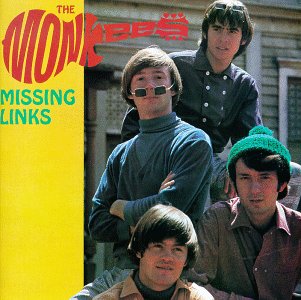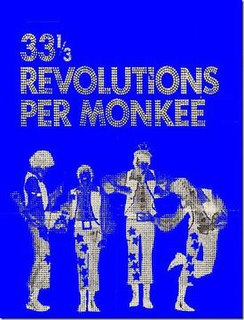Related Research Articles

The Monkees are an American rock and pop band originally active between 1966 and 1971, with reunion albums and tours in the decades that followed. Their original line-up consisted of the American actor/musicians Micky Dolenz, Michael Nesmith, and Peter Tork with English actor/singer Davy Jones. The group was conceived in 1965 by television producers Bob Rafelson and Bert Schneider specifically for the situation comedy series The Monkees, which aired from 1966 to 1968. The band's music was initially supervised by record producer Don Kirshner, backed by the songwriting duo of Tommy Boyce and Bobby Hart.

George Michael Dolenz Jr. is an American actor, musician, television director, radio personality and theater director, best known as a vocalist and drummer of the 1960s pop/rock band the Monkees.

Peter Halsten Thorkelson, known professionally as Peter Tork, was an American musician, composer and actor, best known as the keyboardist and bass guitarist of The Monkees.

Pisces, Aquarius, Capricorn & Jones Ltd. is the fourth album by the Monkees. It was released on November 6, 1967, when the Monkees were exerting more control over their music and had started to play many of the instruments themselves, something their record company had previously forbidden. It was also the band's fourth consecutive album to reach number one on the U.S. Billboard 200.

Headquarters is the third album issued by the Monkees and the first with substantial songwriting and instrumental performances by members of the group itself, rather than by session musicians and professional songwriters. After a struggle for creative autonomy with their record label, the group had been allowed to record by themselves. Headquarters reached No. 1 on the Billboard 200 chart and was certified double platinum in the United States with sales of more than two million copies within the first two months of release. It peaked at #2 on the UK charts. It is included in the 2006 book 1001 Albums You Must Hear Before You Die.

The Monkees Present is the Monkees' eighth album.

Changes is the ninth studio album by the Monkees. The album was issued after Michael Nesmith's exit from the band, leaving only Micky Dolenz and Davy Jones to fulfill the recording contract they had signed in the mid-1960s. Changes was their last new album for Colgems Records and the group's last album of all new material until 1987's Pool It.

The Birds, The Bees & The Monkees is the fifth studio album by the Monkees. Released in April 1968, it was the first Monkees album not to reach Billboard's number one, peaking at No. 3 on the U.S. charts. It was also their first album to miss the UK charts altogether, with their four previous efforts all having reached the top ten. The album has sold over a million copies.

Head is the soundtrack to the film Head, the only theatrical release by the Monkees. Released in 1968 through Colgems, it was the band's sixth album. Head was the last Monkees album to feature Peter Tork until Pool It! in 1987 and the last to feature all four Monkees until 1996's Justus.

Instant Replay is the seventh studio album by the Monkees. Issued six months after the cancellation of the group's NBC television series, it is also the first album released after Peter Tork left the group and the only album of the original nine studio albums that does not include any songs featured in the TV show from the original NBC run nor the CBS/ABC reruns.
"Circle Sky" is a song written by Michael Nesmith of The Monkees, which appeared on their sixth album, the Head soundtrack, and also in the film Head as a live concert performance.

Missing Links is a compilation album of rare and previously unreleased songs by the Monkees, issued by Rhino Records in 1987. It is the first volume of a three-volume set, followed by Missing Links Volume Two in 1990 and Missing Links Volume Three in 1996.

33 1⁄3 Revolutions per Monkee is a television special starring the Monkees that aired on NBC on April 14, 1969. Produced by Jack Good, the musical guests on the show included Jerry Lee Lewis, Fats Domino, Little Richard, the Clara Ward Singers, the Buddy Miles Express, Paul Arnold and the Moon Express, and We Three in musical performances.

Missing Links Volume Three is a compilation album of rare and previously unreleased songs by The Monkees, issued by Rhino Records in 1996. It is the third and final volume of a three-volume set, preceded by Missing Links in 1987 and Missing Links Volume Two in 1990.

Missing Links Volume Two is a compilation album of rare and previously unreleased songs by the Monkees, issued by Rhino Records in 1990. It is the second volume of a three-volume set, preceded by Missing Links in 1987 and followed by Missing Links Volume Three in 1996.
"Star Collector" is a song written by Gerry Goffin and Carole King in 1967 and recorded by The Monkees. The song is included on their fourth album, Pisces, Aquarius, Capricorn & Jones Ltd. It was also featured in five second-season episodes of their television series: "The Wild Monkees", "Hitting the High Seas", "Monkees Watch Their Feet", "Monkees in Paris" and "Monkees Mind Their Manor". "The Wild Monkees" uses an early mix of the song while the other episodes use the released mix.

"Pleasant Valley Sunday" is a song by Gerry Goffin and Carole King, most famous for the version recorded by the Monkees in 1967. Goffin's and King's inspiration for the name was a street named Pleasant Valley Way, in West Orange, New Jersey where they were living at the time. The road follows a valley through several communities among the Watchung Mountains. The lyrics were a social commentary on status symbols, creature comforts, life in suburbia and "keeping up with the Joneses". It became one of the Monkees' most successful singles.

"A Little Bit Me, a Little Bit You" is a song by Neil Diamond that was released by The Monkees in 1967. Davy Jones sang the lead vocal. It went to No. 1 in the US Cashbox charts. On the Billboard charts it went to No. 2, and "Somethin' Stupid" by Frank Sinatra and Nancy Sinatra kept it from the No. 1 spot.

"The Girl I Knew Somewhere" is a song by the American pop rock band the Monkees, written by Michael Nesmith, and first released as the B-side to the "A Little Bit Me, a Little Bit You" single on Colgems Records on 8 March 1967. It was distributed in support of the group's third album Headquarters, and later appeared on the reissued version of the LP. The song was recorded as the Monkees finally achieved the independence that enabled them to freely produce their own material, with the actual band members being featured on both vocals and instrumental arrangements.

Good Times! is the twelfth studio album by American pop rock band the Monkees. Produced mainly by Adam Schlesinger, the album was recorded to commemorate the band's 50th anniversary. It is the first Monkees studio album since Justus (1996), marking the longest gap between Monkees albums to date, and the first since the death of founding member Davy Jones. The album features surviving Monkees Micky Dolenz, Michael Nesmith, and Peter Tork, as well as a posthumous contribution from Jones.
References
- The Monkees Tale by Eric Lefcowitz (1985, Last Gasp Press, San Francisco, California)
- Missing Links liner notes (Rhino Records)
- Music Box liner notes (Rhino Records)
| This 1960s song-related article is a stub. You can help Wikipedia by expanding it. |